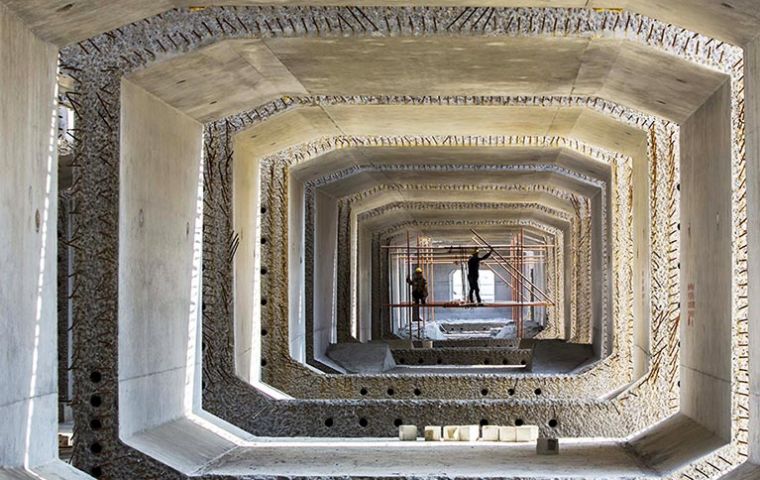MercoPress. South Atlantic News Agency
Beijing prepared to privatize huge state companies sector, but “strengthening party leadership”
 China's government manages 111 companies centrally under the State-owned Assets Supervision and Administration Commission, SASAC.
China's government manages 111 companies centrally under the State-owned Assets Supervision and Administration Commission, SASAC.  Local governments own and manage around 25,000 state-owned companies and the sector employs nearly 7.5 million people.
Local governments own and manage around 25,000 state-owned companies and the sector employs nearly 7.5 million people. Beijing has unveiled its long-awaited blueprint for restructuring its mammoth state enterprise sector, including partial privatization, as data pointed to a cooling in the world's second-largest economy.
The guidelines, jointly issued on Sunday by the Communist Party's Central Committee and the State Council, China's cabinet, include moves to clean up and integrate some state firms, the official Xinhua news agency said. It did not elaborate.
The guidelines were issued weeks after China's devaluation of the Yuan in August and a plunge in stock markets since June have fueled fears of more economic shocks, although Premier Li Keqiang has brushed off concerns of a hard landing.
Reform of underperforming state-owned enterprises is one of China's most pressing needs. But if not handled well, the restructuring could lead to hundreds of thousands of people being laid off and social instability.
Leaders have promised to give entrepreneurs and market forces a bigger role but insist state ownership will remain the core of the economy. And rather than reducing the party's role, the plan says it will “strengthen party leadership” of state companies.
The plan issued late Sunday reflects the complex path the party walks in trying to develop the world's second-largest economy while retaining its monopoly on power. Xinhua said the plans included introducing “mixed ownership” by bringing in private investment, and “decisive results” were expected by 2020.
The government will not force “mixed ownership,” nor will it set a timetable, giving each firm the go-ahead only when conditions are mature, it said.
“This reform will be positive for improving the impetus of the economy and making growth more sustainable,” said Xu Hongcai, director of the economic research department at the China Center for International Economic Exchange (CCIEE), a Beijing-based think-think.
Partial privatization, he added, would help establish “check-and-balance and incentive systems” at state firms.
China's government manages 111 companies centrally under the State-owned Assets Supervision and Administration Commission, or SASAC. Local governments own and manage around 25,000 state-owned companies and the sector employs nearly 7.5 million people.
State firms will be allowed to bring in “various investors” to help diversify share ownership, and more state firms will be encouraged to restructure to pave the way for stock listings, Xinhua said.
Private investors will be encouraged to buy stakes in state firms, buy convertible bonds issued by state firms, or swap shares with state firms, it said, adding steps will be taken to curb corruption during reforms.
However, Beijing will have to convince entrenched interests at local, provincial and national governments to relinquish some control over state enterprises. It would have to entice investors to buy shares after one of the worst stock market crashes in China's history.
Xinhua indicated full-scale privatization was not on the cards, saying the government was aiming to “cultivate a large number of state-owned backbone enterprises with innovation capability and international competitiveness.”
The details were issued after the government said growth in China's investment and factory output missed forecasts in August. The data followed weak trade and inflation readings, raising the chances that economic growth may dip below 7% in third-quarter for the first time since the global financial crisis.
Some economists believe growth is already much weaker than official data suggests. Annual growth in real estate investment also continued to cool to 3.5% in the first eight months, the weakest since early 2009, from 4.3% in January to July.




Top Comments
Disclaimer & comment rules-

-

-

Read all commentsSeveral segments will have privatized companies, including agribusiness. Some of these opportunities are unmissable for Brazilian companies. Let's put our entrepreneurial spirit in luggage for the trip to Shanghai.
Sep 15th, 2015 - 10:41 am 0Sorry but as Australia is about to sign a free trade deal with China it seems we will be ahead of you in the line to invest.
Sep 15th, 2015 - 11:03 am 0@1 You are advocating Capitalism? Don't tell the rest of your gang or you will be booted out.
Sep 15th, 2015 - 11:25 am 0Commenting for this story is now closed.
If you have a Facebook account, become a fan and comment on our Facebook Page!